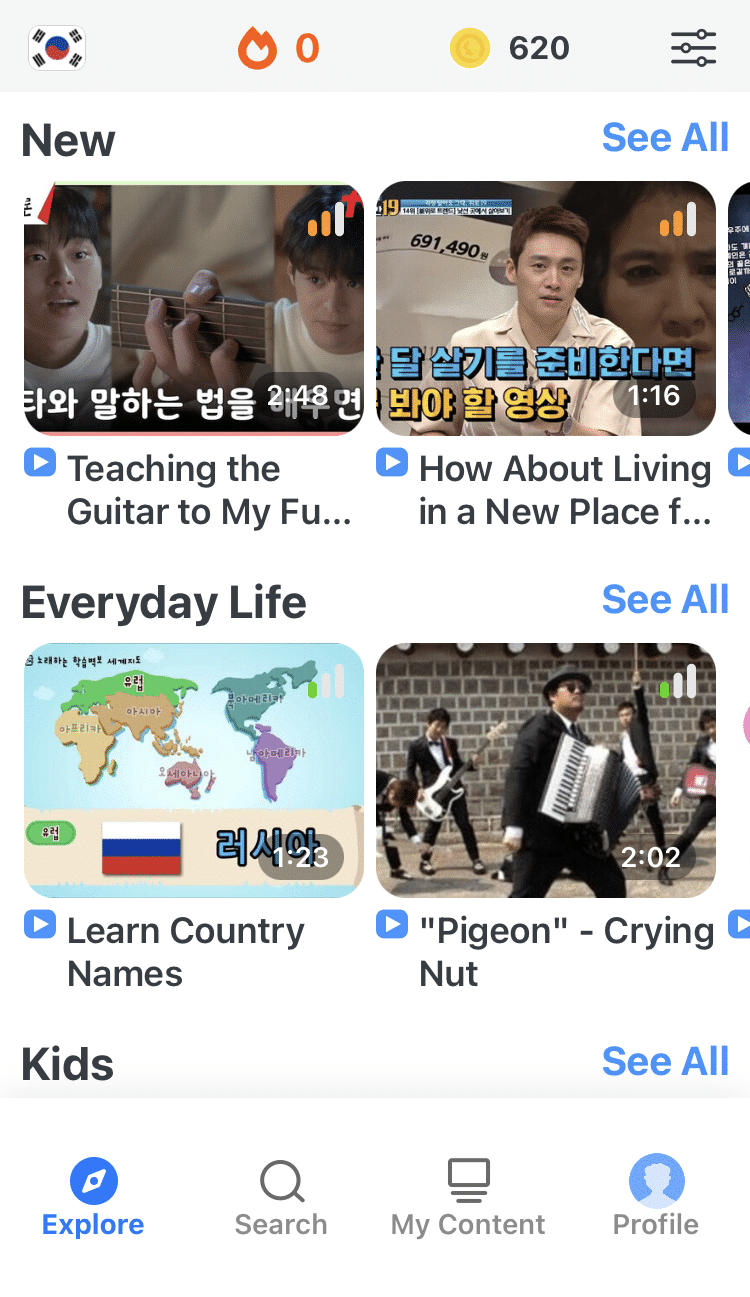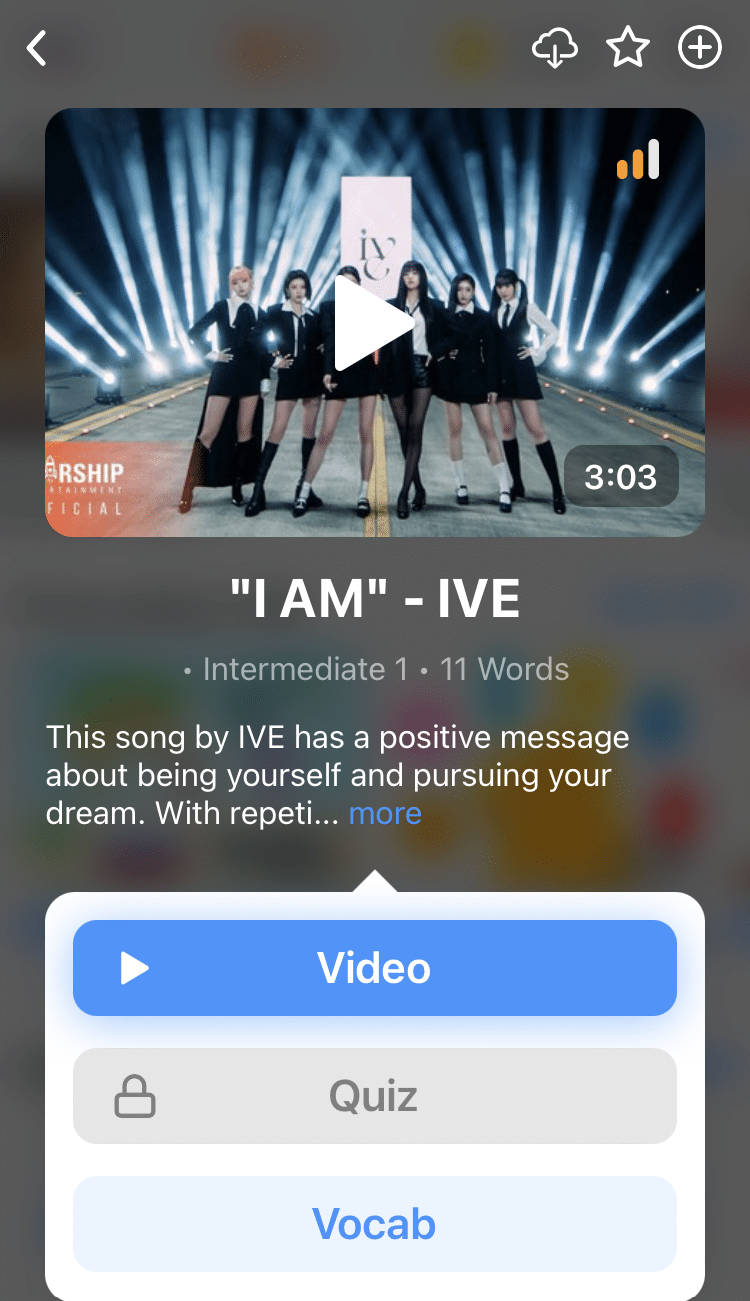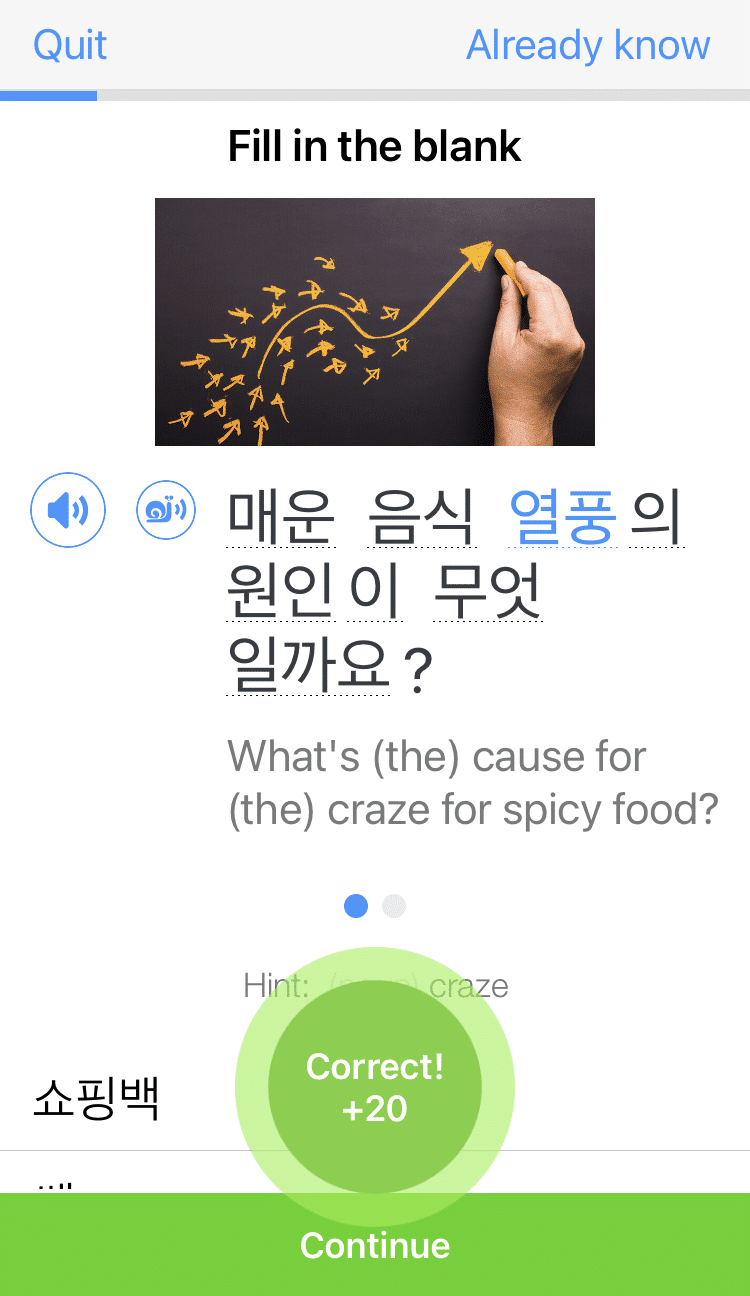
24 Curse Words in Korean You Really Shouldn’t Use
Learning curse words in Korean, known as 욕 , can be especially invigorating. For a culture with plenty of rigid rules and expectations on honor and respect, it sure seems to enjoy potty-mouthing as well.
I’m hoping that you at least know the basics of Korean before you jump into this. Nonetheless, here we go: a list of 24 popular Korean curse words and insults.
Contents
- 1. 죽을래? / 질래? — Wanna die?
- 2. 씨발 — Shit, fuck
- 3. 놈 / 년 — Bastard / Bitch
- 4. 미친놈 / 년 — Crazy bastard/bitch
- 5. 젠장 — Damn it / What the hell
- 6. (입) 닥쳐 — Shut up
- 7. 새끼 — Brat
- 8. 개새끼 — Son of a bitch
- 9. 꺼져 — Get lost
- 10. 엿 먹어 — Fuck you
- 11. 또라이 — Crazy, freak
- 12. 병신 — Idiot, moron
- 13. 지랄 — Crazy, nuts
- 14. 재수 없어 — You suck / You’re unbelievable
- 15. 보지 — Female genitalia
- 16. 좆 — Male genitalia
- 17. 좆됐어 — I’m screwed
- 18. 창녀 — Prostitute, harlot
- 19. 암캐 — Bitch
- 20. 변태 — Pervert, weirdo
- 21. 가시나 — Lass / Wench
- 22. 반푼이 — Half-wit
- 23. 염병 — Irritating / Screw you / May you suffer
- 24. 똥물에 튀겨 죽일 놈 — Guy who should be fried in dung water and killed
- And One More Thing...
Download: This blog post is available as a convenient and portable PDF that you can take anywhere. Click here to get a copy. (Download)
1. 죽을래? / 질래? — Wanna die?
Three syllables, a triple threat that leaves no room to the imagination. This expression is commonly said by Korean people of all ages, amongst kids in a playground or drunkards in a bar. Usually, the phrase comes off as teasing, but it can be used as a serious threat as well.
뒤질래, derived from 뒈지다 (meaning “to dig” or “to grub about”), is more slang-y and can be perceived to be more aggressive.
You could be more direct and just straight up tell someone to kick the bucket by saying either 죽어라! or 뒈져라! .
2. 씨발 — Shit, fuck
The is a classic for Koreans, one you’ll hear anytime, anywhere. It works as an interjection of frustration or as a pointed insult when combined with a noun. It’s a favorite because it’s so versatile in its use.
If you watch a mature-rated Korean movie or K-drama, then you’ll probably hear 씨발 in several variations at least 50 times (this is just a generous estimate).
씨팔 is another way to say it, but it sounds quite like 십팔 (eighteen). Therefore, 씨팔 might be considered less vulgar in certain contexts.
3. 놈 / 년 — Bastard / Bitch
놈 and 년 are negatory words referring to a male or female, respectively. By themselves, they’re not too terrible (although 년 carries a stronger derogatory meaning). Saying something like 이놈 to a dude is the equivalent of growling “This guy!” and angrily shaking a fist at him.
However, when they’re combined with basically any other noun or adjective, they can become rather brutal insults. You can get very creative with it, too. Here are a few examples:
- 걸레 같은 년 — lit. “girl that resembles a mop” (insinuating she’s promiscuous)
- 빌레 같은 놈 — lit. “guy that’s like a bug” (insinuating he’s nasty)
4. 미친놈 / 년 — Crazy bastard/bitch
See that 놈/년 at the end? That’s how you know it’s not nice.
미친 means “crazy” and isn’t a particularly nasty word by itself. But when combined with either of the deadly duo suffixes, you get an unpleasant insult to describe a deranged person.
5. 젠장 — Damn it / What the hell
This is derived from a term describing a primitive method of torture. It’s used more often as a personal interjection than a directed insult.
If you get particularly frustrated or upset by something, go to a reasonably unoccupied space, give your foot a good old stomp and yell a nice, loud 젠장. You might feel better.
Note: Do not confuse this with 된장 , which is soybean paste.
6. (입) 닥쳐 — Shut up
On the scale of disrespect, this expression is a good step up from 시끄러워 (it’s noisy), which is already pretty rude.
닥쳐 is a harsh way to tell someone that they should really, really stop talking. You can also put a bit more emphasis and say the whole phrase 입 닥쳐 to mean “shut your mouth,” just in case you wanted to be extra clear.
7. 새끼 — Brat
Another word that, by itself, doesn’t cause much harm (unless you direct it to an elder, which will get you a deserved whack on the head). All it means is “child” or “offspring.” Parents use it often to cheekily refer to their children, and it can come off as mildly condescending in such a context.
However, like 놈 and 년 above, 쌔끼 is another one of those nouns that is a popular suffix to a bunch of Korean insults. For example, 씹새끼 is a nasty insult that almost guarantees confrontation of some sort.
8. 개새끼 — Son of a bitch
A fan favorite curse that I’m certain you’ve heard before. There’s 새끼 at the end, so you know it’s probably gonna be bad.
Every culture has an animal that’s somehow the butt of an insult. For Koreans, that would be the dog. Attaching 개 to a noun or phase typically produces a negative meaning. 개쌔끼 literally means “child of a dog,” but it’s equivalent to the English “son of a bitch.”
9. 꺼져 — Get lost
Someone intruding a bit too much into your space and getting on your nerves? A sharp “꺼져!” will very firmly and rudely send the message that you want them to buzz off, posthaste. You’ll hear it quite often in Korean shows centered around gangsters and delinquents.
In certain phrases, 꺼져 can also just mean “off,” as in: 컴퓨터가 꺼져 있어요 (The computer is off).
10. 엿 먹어 — Fuck you
엿 is actually a type of taffy-like Korean sweet. So, this phrase actually translates to “eat 엿.”
This is not a dining invitation. Somehow, 엿 gained a negative connotation and is now commonly used in slang as an equivalent to the English f-word. So the expression 엿 먹어 basically means “fuck you.”
One theory as to why 엿 gained a bad rep is because it’s notoriously hard to eat—it can stick to your teeth like Gorilla Glue. Personally, I love 엿, and I suggest you give it a try before you judge it.
11. 또라이 — Crazy, freak
This is said to be a slurring of the expression 돌아이 , which means “stone child.” And, well, I suppose stone children aren’t the most normal things you could have around.
또라이 isn’t too bad of an insult, and it’s admittedly fun to say, if not very fun in meaning.
We could bring back 개 (dog) to add a bit more emphasis to this insult. 개또라이 can be used to describe one who’s acting as mad as a rabid dog.
12. 병신 — Idiot, moron
Originally, 병신 was used to describe a disabled person, but even then it was considered offensive in nature. It underwent a similar change in perception as the “R” slur in English.
This troublesome term is quite crass, but it generally isn’t perceived to be bad enough for one to deserve a punch in the face.
13. 지랄 — Crazy, nuts
지랄 literally means “convulsion.” In the past, it referred to epileptic seizures. Over time, it became an insult used to describe a nonsensical commotion, or a person who is acting out for no reason.
In other words: 지랄 is used to describe what you consider a bunch of BS behavior.
A reckless driver who’s racing through red lights? 지랄. A lazy coworker who complains constantly about their nonexistent workload? 지랄. Your roommate claiming he didn’t eat your birthday cupcake when he has chocolate icing all over his mouth? 지랄.
14. 재수 없어 — You suck / You’re unbelievable
A saying to express your disdain towards a remarkably disagreeable fellow. It’s not a terrible curse, but it’s definitely unfriendly and spiteful.
재수 없어 translates literally to “no luck or fortune.” You’re turning your nose up at someone you think is unpleasant and sorely lacking in manners and class. I find it to be a favorite expression among older Korean ladies.
15. 보지 — Female genitalia
Because of course, no culture can resist making inappropriate terms for private parts. It’s just science.
I consider 보지 to be rather insidious though. Not only is it very easy to say, but 보지 also can be used in more innocuous ways. 보지 can mean “see,” and 해 보지 simply means “do it.” So, tread lightly with this one!
By the way, the more “toned down” version of this would be 여성 성기 , which literally just translates to female privates. However, folks might still cluck their tongues if you were to say that.
16. 좆 — Male genitalia
Again, it’s just so maliciously easy to say. Be careful that you pronounce it correctly, as it’s not difficult to slip up and mispronounce it as something else. For example, 젓가락 means chopsticks, while the somewhat similar-sounding 좆 까라 means…definitely not that.
It has roughly the same impact as English slang terms for male privates (words that start with “d” and “c”). One funny expression is 좆 같다 (meaning “like a penis”), used to describe something ridiculous.
17. 좆됐어 — I’m screwed
좆 can also be used to describe something as messed up. 좆됐어 is a common vulgar way for young ‘uns to express that they’re in a kind of pickle, or to describe a messy state of affairs.
This could be anything, from failing a math test to not preparing a birthday gift for your significant other.
One way to learn how to use this term—and the others on our list—is to hear it used by native Korean speakers in context. You can watch real Korean videos on a variety of subjects to hear how phrases are really used with a program like FluentU.
FluentU takes authentic videos—like music videos, movie trailers, news and inspiring talks—and turns them into personalized language learning lessons.
You can try FluentU for free for 2 weeks. Check out the website or download the iOS app or Android app.
P.S. Click here to take advantage of our current sale! (Expires at the end of this month.)
18. 창녀 — Prostitute, harlot
To describe a woman as a 창녀 is, of course, not a nice gesture. It has the same meaning and offensiveness as the English “whore” or “hooker.”
If you are bold (or dumb) enough to call a lady this, don’t be surprised if you get a nice slap in the face for your audacity.
19. 암캐 — Bitch
This is derived from 암개 , which is a way of referring to a female dog. No further explanation needed. It’s pretty straightforward in what it means when directed at a woman.
Though I am seriously wondering why dogs are getting all this unnecessary hate.
20. 변태 — Pervert, weirdo
The perfect word to describe a very sleazy guy, an utter degenerate. However, it can also be used to describe someone who does or enjoys bizarre things that aren’t necessarily sexual in nature.
Imagine a bloke who’s swaggering down the street in a onesie, singing and dancing to a BTS song while drinking expired milk straight from the carton. Pretty strange, so, I’d feel vindicated to call him a 변태.
21. 가시나 — Lass / Wench
Prominently used in southeast Korea (where Busan city is located), 가시나 can have two functions. It can be used playfully for younger females, working somewhat like the word “chick” or “gal.”
However, it can also be used aggressively to describe a decidedly unflattering woman—a close English equivalent could be “wench” or “broad.” It’s a double-edged sword, so do be careful when and how you use this one!
22. 반푼이 — Half-wit
Another insult borne and used prominently in southeast Korea. This is a mean jibe at an individual you consider incapable and inadequate. 반 literally does translate to “half,” so the insinuation is that the individual isn’t fully with it.
23. 염병 — Irritating / Screw you / May you suffer
It’s a bit hard to find a direct translation for this. 염병 actually refers to disease—more specifically, typhoid fever. This contagion was a prevalent threat in Korea back in the day.
The severity of 염병 as an insult can vary. You can use it in a less serious manner to refer to something irksome or pestilent. On the other hand, muttering 염병 under your breath while glaring daggers at someone basically means you wish them pain equivalent to how they’d feel if plagued with sickness. Talk about an actual curse!
24. 똥물에 튀겨 죽일 놈 — Guy who should be fried in dung water and killed
I had to add this one because it’s just so fantastically unique. Being angry can really bring out the poetry in us, so you have to acknowledge that whoever uses this curse is passionate enough to say such a mouthful.
I’m afraid I don’t have much context to explain it. To keep it simple, whoever is deserving of this insult must be one you have a very, very low opinion of.
Do take caution when using any of these words in real life—better yet, don’t use them at all (in public at least).
As entertaining as some of them are, they’re not worth getting into arguments or fistfights over!
Download: This blog post is available as a convenient and portable PDF that you can take anywhere. Click here to get a copy. (Download)
And One More Thing...
If you enjoyed this post, you're already halfway to having the time of your life learning Korean with FluentU!
FluentU makes it possible to learn with K-pop videos, funny commercials, entertaining web series and more. Just a quick look will give you an idea of the variety of FluentU videos on offer:

FluentU really takes the grunt work out of learning languages, leaving you with nothing but engaging, effective and efficient learning. It's already hand-picked the best videos for you (which are organized by level and topic), so all you have to do is simply choose any video that strikes your fancy to get started.
Each word in the interactive captions comes with a definition, audio, image, example sentences and more.

Access a complete interactive transcript of every video under the Dialogue tab, and easily review words and phrases from the video under Vocab.

You can use FluentU’s unique Quiz Mode to learn the vocabulary and phrases from the video through fun questions.

FluentU keeps track of what you're learning, and tells you exactly when it's time for review, giving you a 100% personalized experience.
Review sessions use video context to help embed the words in your memory.
Start using the FluentU website on your computer or tablet or, better yet, download the FluentU app from the iTunes or Google Play store. Click here to take advantage of our current sale! (Expires at the end of this month.)



